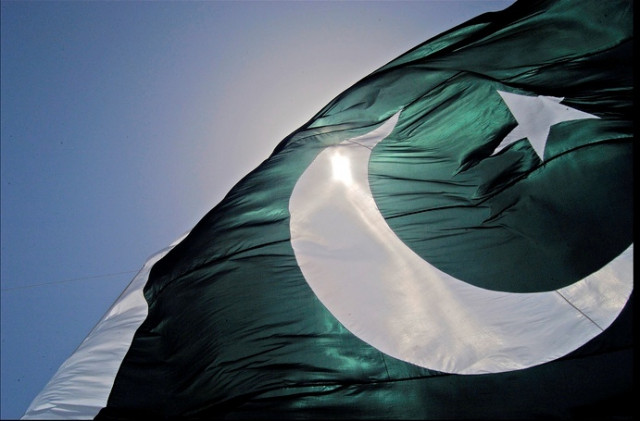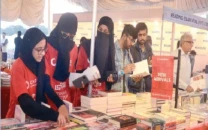Drawing parallels: Why is South East Asia doing economically better than Pakistan?
They have policies that attract foreign investment and technology spillovers.

What does European and South East Asian development have in common? Good governance. The degree of governance might vary from country to region but it is the common factor which lets the benefits of foreign investment flow to the people.
This was the focus of the workshop held on “The contemporary Western model of governance: A comparison between the success stories in South East Asia and Far East; and the struggling politics of South Asia.”
The speakers talked about the European Union, the Association of South East Asian Nations (ASEAN) and compared the models of South Korea, Indonesia and China with Pakistan and the West.
The moderator of the workshop, Najmuddin Sheikh, the former foreign secretary, aptly navigated and steered the discussions and presentations. If it weren’t for his crisp and concise interpretations, the throng of information might have been completely lost on the audience.
“The concept of Capitalism in South East Asia: The Malaysia Experience,” was the theme of the first session. The ASCE chief, Uzma Shujaat, said in her opening remarks that capitalism itself had changed over time and it was especially evident in the development of South East Asian countries. They didn’t change their economies drastically but eased capitalism into their systems to suit their means, giving rise to “Asian Capitalism.”
A lecturer at the Area Study Centre for the Far East and South East Asia at Sindh University Jamshoro, Ghulam Murtaza Khoso, talked about how capitalism first made its way towards South East Asia. “The way the region is today, is because of the after-effects of the Cold War,” he said. “To counter the communist influence, America introduced military pacts for countries such as South East Asia Treaty Organisation (SEATO).”
Next was a presentation on “Foreign Direct Investment (FDI) and Indonesia: Development of Competitive Industrial Capabilities,” by Muhammad Asif, the principal economist at the Social Policy and Development Centre, Karachi.
The presentation was detailed but technical, as he highlighted the role of FDI and discussed how it can be encouraged. Here too, the gist of his presentation was that if the host country does not have policies that support the inflow of foreign capital and technology spillover by developed countries, it is very difficult to develop economically.
Talking specifically about Indonesia, he said that the country began to open up to foreign investment after the 1980s. The government introduced exemptions and gradually reduced and then waived tariffs on imports in 1994. At the same time it built its institutions, especially the chemical and pharmaceutical industries. However, while in some areas FDI caused industries to grow exponentially, in other areas where the technology spillover was much less, like the indigenous industries, mining and quarrying, went into a decline.
Sheikh added that the countries of South East Asia are seen making agreements that cause technology spillovers. Comparing it to Pakistan, he said that the youth bulge of Pakistan was a ticking bomb and a liability. Because of the huge chunk of young people in the country, around 3.5 million jobs have to be created every year. When there is unemployment obviously there will be frustration among them.
The next speaker was Samar Hasan, a senior planning associate at Habib University Foundation Karachi. She read a paper on “The South Korean Model: A comparison between Pakistan and Bangladesh.”
South Korea used to be even poorer than Sudan and Congo but now has developed into an economic tiger alongside Bangladesh. The secret was that the leftists and the progressives put their differences aside for the greater good of the country. Another reason was since 1987, from its first democratic government, all the major political parties and figures have had their chance to govern and people participated in policy making. Pakistan as compared to Bangladesh and South Korea was still relatively young when it came to democracy.
People’s acceptance or rejections somehow shaped national policies.
Finally it was the turn of Bilal Ahmed, a senior economist at Pakistan Institute of Labour and Research. He spoke on “Possibilities for Development of local government with partnership of Global capital: the domain of Shanghai and Karachi.”
He gave a presentation on the benchmarks for a megacity and how it was possible to sustain. He included around 90 indicators that need to work upon development. The indicators were divided into six categories, traffic, disaster, security, environment and energy management, socio economic adjustment and municipal utilities. He thought that the local government should work to invite foreign investment to build the city’s resources.
But all his examples were from Karachi and Shanghai was missing from the model and the discussion, as the moderator pointed it out. He also disagreed with the approach. Legislation and implementation of laws were in the hands of the provincial or the federal governments and the local governments should only try to persuade people to be good citizens. Foreign investment, he said will make the resources expensive because the investor will obviously want returns.
Published in The Express Tribune, March 18th, 2012.



















COMMENTS
Comments are moderated and generally will be posted if they are on-topic and not abusive.
For more information, please see our Comments FAQ